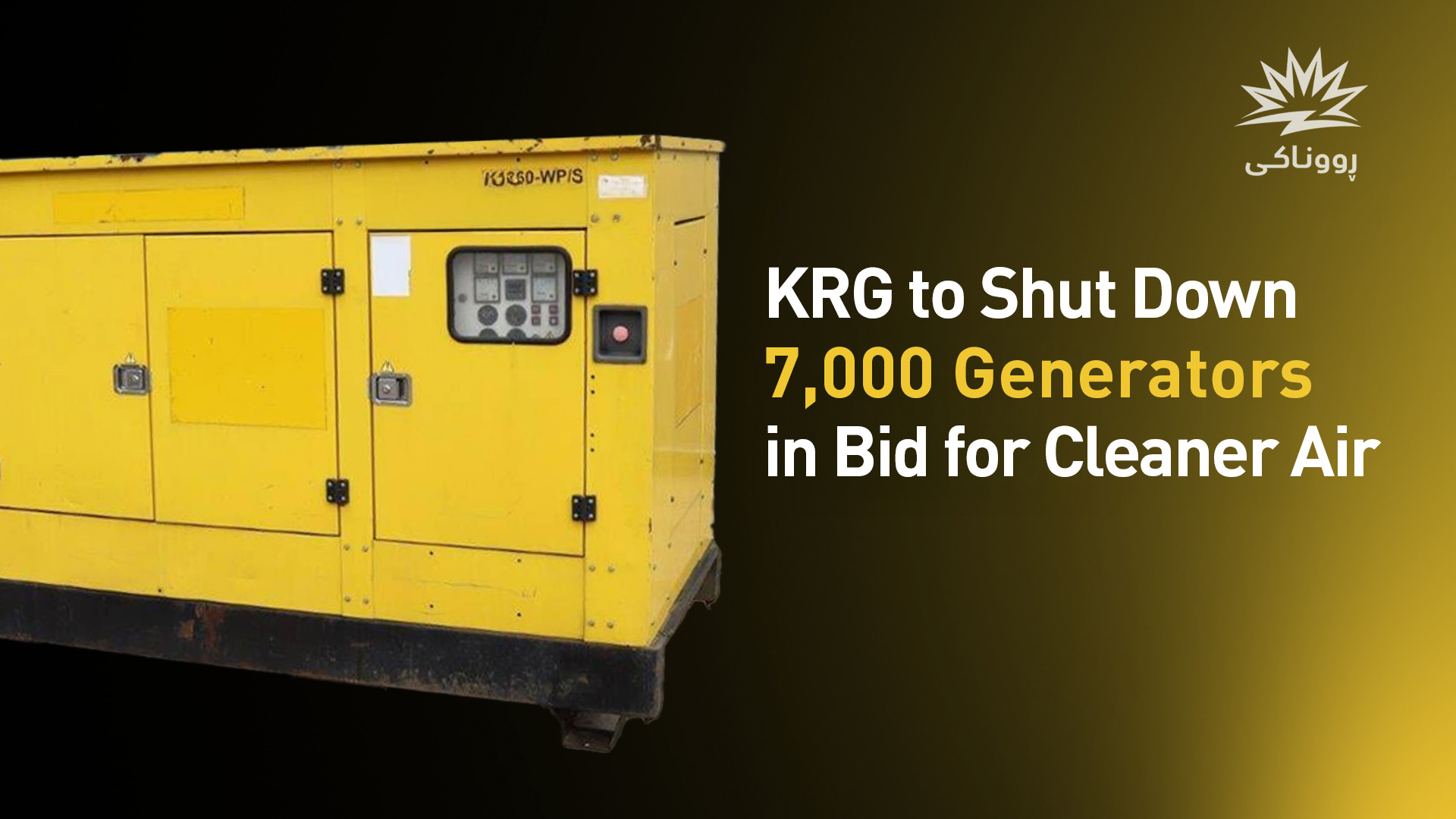Runaki Project Aims to Cut Emissions, Boost Public Health
The KRG's Runaki Project will shut down over 7,000 generators to provide 24-hour electricity, a move experts say will combat severe air pollution and reduce high cancer rates linked to toxic generator emissions.

ERBIL (Kurdistan24) – A major Kurdistan Regional Government (KRG) initiative to provide 24-hour electricity is poised to shut down more than 7,000 private generators, a move that medical and environmental experts say will directly impact public health by reducing air pollution previously linked to a rise in cancer cases.
The Runaki Project, designed to deliver continuous power to citizens, has environmental protection as one of its key goals. In Sulaimani province alone, 292 neighborhood generators have already been shut down, a reduction in emissions equivalent to that of 50,516 cars. According to doctors and environmental specialists, removing these generators will lead to a decrease in disease.
The health concerns are significant. At Hiwa Hospital in Sulaimani city, 3,310 people, including 201 children, have been registered with various types of cancer in 2024. Dr. Yad Naqshbandi, the director of Hiwa Hospital, announced the gravity of the situation, stating, "In just the first six months of this year, 2,681 new cases of cancer have been registered."
Dr. Naqshbandi emphasized the need for comprehensive environmental reform. "Improving the quality and cleanliness of the environment by removing generators, or ensuring all factories that scientifically require them have filters, and also regulating the food quality in the Kurdistan Region is necessary," he said. "Because even if their effects are not apparent now, their direct impact will emerge in the future, in about 10 more years."
Scientific research corroborates the dangers of generator emissions. A study conducted by specialists from the University of Sulaimani between 2018 and 2023 analyzed the extent of environmental pollution from these sources.
"We focused on six gases to determine their emission levels," said Salih Najib, an environmental specialist involved in the study. "It was found that some of the gases emitted from the generators affected the atmosphere, while others impact human health. We found that the gases emitted from the generators include carbon monoxide, which affects human health, and likewise, nitrogen oxide, which similarly impacts human health."
Under the Runaki Project, citizens will receive continuous power and a single monthly bill determined by usage. The initiative promises not only to modernize the electricity grid but also to foster cleaner environments in neighborhoods and cities across the Kurdistan Region.
